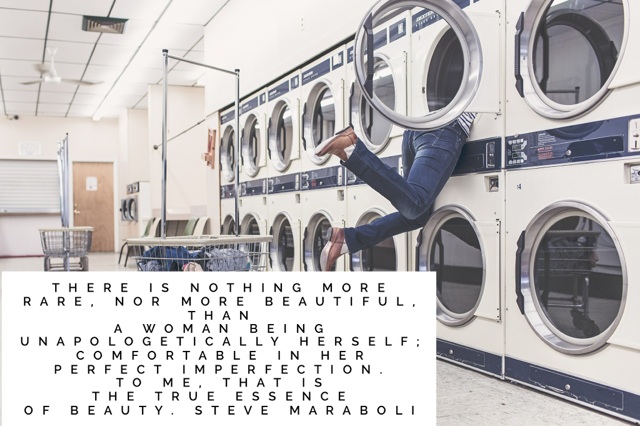I went to a fantastic creative workshop with twelve women the other day. In the first fifteen minutes, we ordered coffee and began introducing ourselves. They were all amazing women who impressed me with their creativity, talent and presence.
In that first fifteen minutes, six women said sorry.
‘Sorry, I’m not used to speaking about myself.’
‘Sorry, it’s been a long time since I’ve done this sort of thing.’
‘Sorry, I’m exhausted and my words aren’t coming out right.’
‘Sorry, I know my story isn’t as interesting as some of the others.’
Some of the women said sorry several times. I probably said it myself. Sorry seems to be the easiest word for women. We apologise and apologise and apologise. We excuse ourselves constantly. We try to make others happy and put ourselves last. We apologise for being too loud, too much, not enough. We are just plain sorry.
When sorry becomes an excuse for not living the life we’re meant to, then sorry becomes risk avoidance.
Here’s my hunch: nobody’s secure, and nobody feels like she completely belongs. Those insecurities are just job hazards of being human. But some people dance anyway, and those people have more fun.
Glennon Doyle Melton
I’ve been writing a book since 2010 and I’ve had every reason, and excuse, for why it isn’t finished. I’ve published three other books, I’ve worked on my husband’s books, I’ve had surgeries, I’ve been super-busy, I’ve been exhausted.
But, at some point, I realised my excuses were an attempt to convince myself, and others, that a series of difficulties led to a lack of progress.
I’d say to my mentor:
‘Sorry, I’ve been travelling.’
‘Sorry, I’ll do more next week.’
‘Sorry, I’ve been working on another book.’
I came to see that my excuses were dressed up to look like valid reasons, but actually covered up a whole lot of fear.
Fear of putting my work out in an arena I wasn’t familiar with. Fear of not being good enough. Fear.
Fear translated into sorry, and sorry translated into excuses.
If you feel something calling you to dance or write or paint or sing, please refuse to worry about whether you’re good enough. Just do it. Be generous. Offer a gift to the world that no one else can offer: yourself.
Glennon Doyle Melton
We all struggle when there are things in our lives that we apologise for, give excuses for. Our internal conversation becomes a tense discussion between reasons too and excuses not to. Reason to lead to action. Excuses can lead to avoidance and a whole lot of unhealthy behaviours.
‘How can I get out of this?’ (Retreat)
‘I really want to do this. How can I make it happen?’ (Action)
‘This isn’t my number one priority, and in the big picture, won’t matter.’ (Say no to lesser things)
‘In the big picture, this is key to my future and I need to do it.’ (Say yes to better things)
‘I really want to live my life with passion, to travel and reach for my goals and dreams.’ (Aspire)
‘I probably won’t be able to do it anyway. I’m not good enough. I’ll just do what I’m comfortable with. ’ (Settle for less)
‘I can see how this step will lead to the next step I need to take.’ (Clarity)
‘I’m not sure I know if it’s the right thing to do. Maybe I’m meant to do something else.’ (Confusion.)
‘I’m out. I can’t. I’m sorry.’ (Excuses look for the out.)
‘Can you give me three good reasons why this will work for me?’ (Reasons look for the in.)
A million emotions, reasons, apologies, fears and insecurities, are wrapped up in our excuses.
When we say sorry, when we apologise—give excuses—we may be in risk-avoidance mode.
So what are we to do? Perhaps we need to find the reasons TO, rather than find the excuses NOT TO take risks.
Perhaps we need to step into our calling and let go of our excuses. Perhaps we need to stop saying sorry and excusing ourselves. Perhaps we need to embrace the idea that we’re not sorry to be the person we’re created to be. We’re created to bring something unique to the world and that’s not something to be sorry about.
Perhaps we need to add a new phrase to our life script: Sorry. Not Sorry.
Honestly, if you’re not willing to take a risk in service of living a life that’s true to who you are, then what are you willing to risk?
Ed Herzog
Elaine



